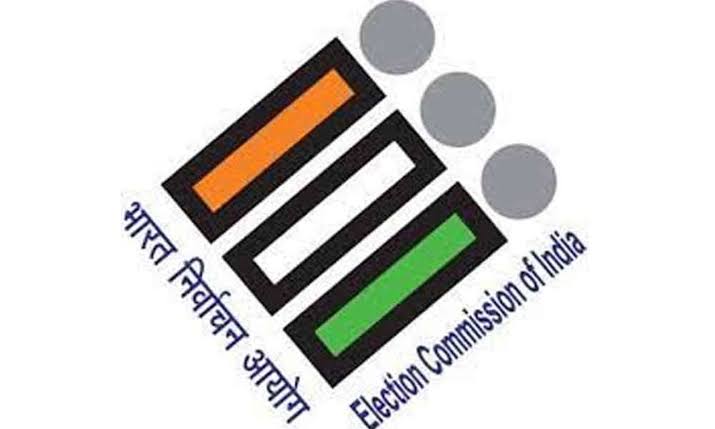Would Elections from State Exchequer curb Corruption?
- +++++++++++++++++++++
- By Laxminarayan Kanungo
- ++++++++++++++++++++
- // TATKAL ODISHA //
Most of us believe that election expenses have become the root cause of corruption. Right now, while hefty donations are pouring into political parties from various corporate houses, there is a chance of quid pro quo and corruption.
The solution for this menace would be complete ‘State Funding of Parties and Elections,’ as suggested by various committees and commissions in the last four decades. But it is ironic that the suggestions couldn’t be executed yet, and the Election Commissioners and the Prime Ministers who couldn’t implement the recommendations in their tenure are now advocating for state funding of parties and elections!

Later, the individuals who have advocated for state funding of elections are former Prime Minister Manmohan Singh, Ex-CECs Dr. S Y Quraishi, Navin B Chawla, and N Gopalaswamy. According to Dr. S Y Quraishi, Ex-CEC, the government should dole out Rs 100 per vote to all parties/candidates who secure more than one percent vote. The money can be shared equally by candidates and parties. For example, if a candidate gets 10 lakh votes, he can obtain Rs 10 crore from the state exchequer, which will be sufficient for the candidate and his party to carry out political activities for the entire five years.
“As per an estimate by Quraishi, Ex-CEC, in the 2009 Lok Sabha poll, 42 crore votes were cast. At Rs 100 a vote, total state funding would come to Rs 4,200 crore.”
As per an estimate by Quraishi, Ex-CEC, in the 2009 Lok Sabha poll, 42 crore votes were cast. At Rs 100 a vote, total state funding would come to Rs 4,200 crore. Taking state elections, bye-polls, and mid-term elections into account, the figure may double and rise to around Rs 10,000 crore in five years. This roughly corresponds to the funds parties reportedly raise collectively in five years through all means, including dubious ones. In another way, the country would only have to spend Rs 2,000 crore per annum from the state exchequer. Here, we shouldn’t forget that, according to a conservative estimate, the country is losing Rs 55,000 crore annually in hawala transactions, above and beyond the web of corruption inside the country. When Quraishi estimated the financial cost to the state exchequer of funding parties in 2009, India’s annual budget was only about Rs 10 lakh crore, and it has crossed Rs 45 lakh crore in 2023-24.
Now, let’s take a glance at when the proposal of absolute state funding of parties and elections gained traction and why it has failed to see the light of day. Former Prime Minister Atal Bihari Vajpayee had set up the Indrajit Gupta Committee to study state funding of parties and elections in 1998. Former Prime Minister Manmohan Singh was also one of the members of the above committee. The report of the committee for state funding of elections was not implemented.
Even in 1999, the Law Commission Report on Reform of the Electoral Laws suggested that total state funding of elections is “desirable,” as long as political parties are prohibited from taking funds from other sources. In 2008, the Second Administrative Reforms Commission also recommended state funding of elections to curb “illegitimate and unnecessary funding” of election expenses.
Many concur that, like France, the country needs complete state funding of parties and elections with proper safeguards like a strong Lokpal and special courts to deal with election cases.
- In 2004, UPA-I had approved a bill in this regard in the Union cabinet, but it expired prematurely as it couldn’t come for discussion in the 14th Lok Sabha. Rahul Gandhi also openly advocated for state funding of elections through a constitutional amendment, but it couldn’t be executed by UPA-II.
In 1969, former Prime Minister Mrs. Indira Gandhi had banned all corporate donations to political parties, but due to a lack of proper monitoring of circuitous financial transactions, it was resumed in 1985.
We have seen, in addition to Left Parties, Trinamool Congress of Mamata Banerjee, always advocating for state funding of parties and elections. Following demonetization, the incumbent Prime Minister Narendra Modi had also appealed to all parties to have a discussion on state funding of parties and elections. However, the NDA-II government hasn’t done anything yet in this regard.
Interestingly, former Prime Minister Manmohan Singh, in 2019, urged all parties to consider state funding of elections, when he found BJP received 13 times more donations than the rest of the six national parties in 2017-18, even if he failed to execute it in his two stints as Prime Minister of this country!
There is no doubt that funding political parties from the state exchequer, with a strong legal framework, can curb the vicious cycle of corruption and conflict of interest to a great extent. If we can reduce corruption, there can be an improvement in the work culture. In the true sense, we can achieve a ‘Swachh Bharat.’
- (The writer is a Senior Journalist based at Bhubaneswar)
- *M-9937199942

